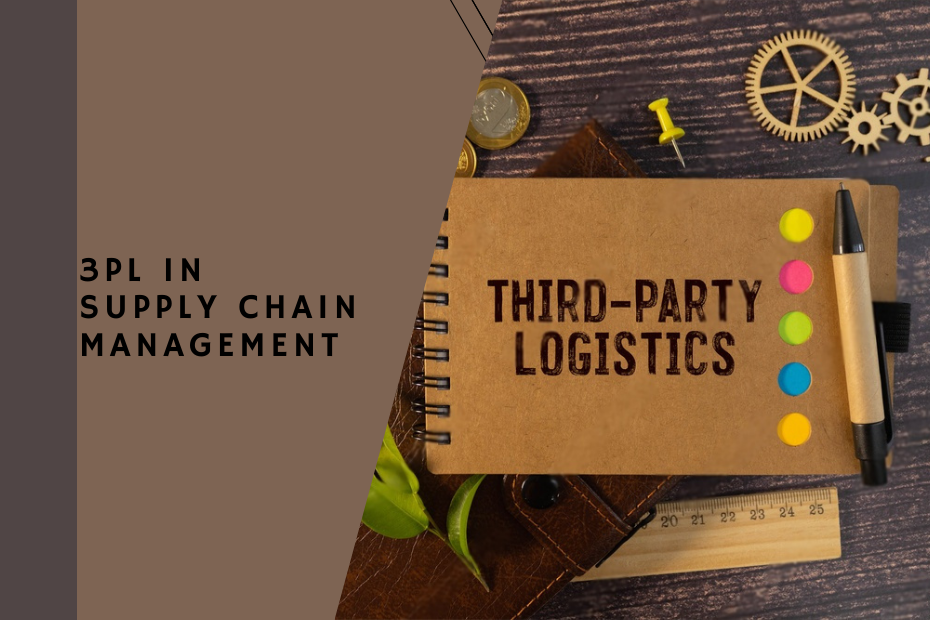In today’s fast-paced global market, efficient supply chain management is crucial for business success. One of the most effective strategies for optimizing logistics operations is leveraging the services of third-party logistics (3PL) providers. This article explores the role of 3PL in supply chain management, highlighting how these services can maximize efficiency, reduce costs, and improve overall operational performance. By understanding the benefits and best practices associated with 3PL, businesses can make informed decisions that enhance their logistics capabilities and competitive edge.
The increasing complexity of global supply chains demands sophisticated logistics solutions. Companies face numerous challenges, including fluctuating customer demands, varying regulatory requirements, and the need for sustainable practices. 3PL providers offer specialized services that help businesses navigate these challenges effectively, allowing them to focus on core activities and drive growth. This article provides a comprehensive overview of the strategic advantages of partnering with 3PLs.
Defining Third-Party Logistics (3PL)
Third-party logistics (3PL) refers to the outsourcing of logistics and supply chain management functions to external service providers. These providers offer a wide range of services, including transportation, warehousing, order fulfillment, inventory management, and freight forwarding. By integrating into a company’s supply chain, 3PLs take over critical logistics tasks, allowing businesses to focus on their core competencies such as product development and marketing.
3PL providers bring specialized expertise and advanced technology to the table, ensuring efficient and streamlined logistics operations. Their services are essential for managing complex supply chains, particularly for businesses that operate on a global scale. The integration of 3PL services can transform logistics from a potential bottleneck into a competitive advantage, enhancing overall business performance.
Enhancing Operational Efficiency

“Key benefits of 3PL providers in enhancing operational efficiency include cost savings, scalability, and access to advanced technology.”
One of the primary benefits of using 3PL services is the significant improvement in operational efficiency. 3PL providers employ state-of-the-art technology and sophisticated logistics systems to manage inventory, optimize transportation routes, and ensure timely deliveries. These capabilities help reduce lead times, minimize errors, and enhance overall customer satisfaction.
For example, advanced warehouse management systems (WMS) used by 3PLs enable precise inventory tracking and efficient order processing. This reduces the risk of stockouts and overstocking, leading to better inventory control and cost savings. Additionally, 3PL providers can optimize transportation networks, reducing transit times and fuel consumption, which further enhances operational efficiency.
In the competitive landscape of modern logistics, efficiency is key to maintaining profitability and customer satisfaction. By leveraging the expertise and resources of 3PL providers, businesses can streamline their operations, reduce waste, and improve service levels. The technological advancements and strategic approaches employed by 3PLs ensure that goods move seamlessly through the supply chain, meeting customer expectations and minimizing costs.
Cost Savings and Scalability
Outsourcing logistics to a 3PL can result in substantial cost savings for businesses. 3PL providers leverage their extensive networks and economies of scale to negotiate better shipping rates and reduce transportation costs. Additionally, businesses can avoid the significant capital expenditures associated with maintaining their own logistics infrastructure.
3PLs also offer scalability, allowing businesses to adjust their logistics operations in response to market demands or seasonal fluctuations. This flexibility is particularly beneficial for companies experiencing rapid growth or entering new markets. By partnering with a 3PL, businesses can scale their logistics capabilities without incurring the overhead costs of expanding their own facilities.
For instance, during peak seasons, such as the holiday shopping period, businesses can rely on 3PLs to handle increased volumes efficiently. Conversely, during slower periods, companies can scale back operations without the burden of fixed costs. This scalability ensures that logistics operations remain cost-effective and responsive to changing market conditions.
Leveraging Technology and Innovation
3PL providers are at the forefront of logistics technology and innovation. They utilize cutting-edge tools such as IoT devices, blockchain, AI, and machine learning to enhance supply chain visibility, optimize routes, and predict potential disruptions. These technologies provide real-time data and analytics, enabling proactive decision-making and improved supply chain management.
For instance, IoT sensors can monitor environmental conditions and track the location of goods in transit, ensuring product integrity and timely deliveries. Blockchain technology enhances transparency and traceability, reducing the risk of fraud and ensuring compliance with regulatory requirements. AI and machine learning algorithms can analyze vast amounts of data to optimize inventory levels, forecast demand, and identify potential bottlenecks in the supply chain.
The integration of these advanced technologies enables 3PL providers to offer superior logistics solutions that drive efficiency and competitiveness. By leveraging technology, 3PLs can enhance the accuracy, speed, and reliability of logistics operations, providing significant value to their clients.
Value-Added Services
Beyond traditional logistics functions, many 3PL providers offer value-added services such as cross-docking, labeling, product repairs, and customs brokerage. These services help streamline operations and improve efficiency by integrating additional processes into the logistics workflow. By handling these tasks, 3PLs enable businesses to deliver better service to their customers and maintain a competitive edge.
Value-added services can also enhance customer satisfaction by ensuring that products are delivered in optimal condition and on time. This comprehensive approach to logistics management allows businesses to focus on their strategic goals and operational excellence. For example, 3PLs can provide tailored solutions for specific industries, such as temperature-controlled storage for pharmaceuticals or specialized handling for hazardous materials.
Managing Supply Chain Risks
Supply chain disruptions can have significant impacts on business operations. 3PL providers help mitigate these risks by offering robust risk management solutions and contingency plans. Their expertise in regulatory compliance, customs regulations, and global shipping standards ensures that businesses can navigate the complexities of international logistics with confidence.
Moreover, 3PLs have extensive experience in handling supply chain disruptions and can quickly adapt to changing circumstances. This agility is crucial for maintaining business continuity and minimizing the impact of unforeseen events on the supply chain. For instance, during the COVID-19 pandemic, many 3PL providers demonstrated their ability to rapidly adjust operations to meet new safety standards and accommodate shifting demand patterns.
Focus on Core Competencies
By outsourcing logistics functions to a 3PL, businesses can reallocate resources and focus on their core competencies. This strategic shift allows companies to invest more in product development, marketing, and customer service, driving growth and innovation. The expertise and technology provided by 3PLs support this focus, ensuring that logistics operations run smoothly and efficiently.
A successful partnership with a 3PL provider can transform logistics from a potential bottleneck into a strategic advantage. By leveraging the strengths of 3PLs, businesses can enhance their overall performance and achieve long-term success in the competitive marketplace. This focus on core activities enables companies to differentiate themselves and create value for their customers.
In Conclusion
Third-party logistics providers play a vital role in modern supply chain management, offering a range of services that enhance efficiency, reduce costs, and improve operational performance. By understanding and utilizing the benefits of 3PL, businesses can optimize their logistics operations and focus on their core competencies. The strategic partnership with a 3PL provider ensures that businesses are well-equipped to navigate the complexities of global supply chains and achieve sustainable growth. Embracing the expertise and technology of 3PL providers is essential for staying competitive and achieving operational excellence in today’s dynamic business environment.










